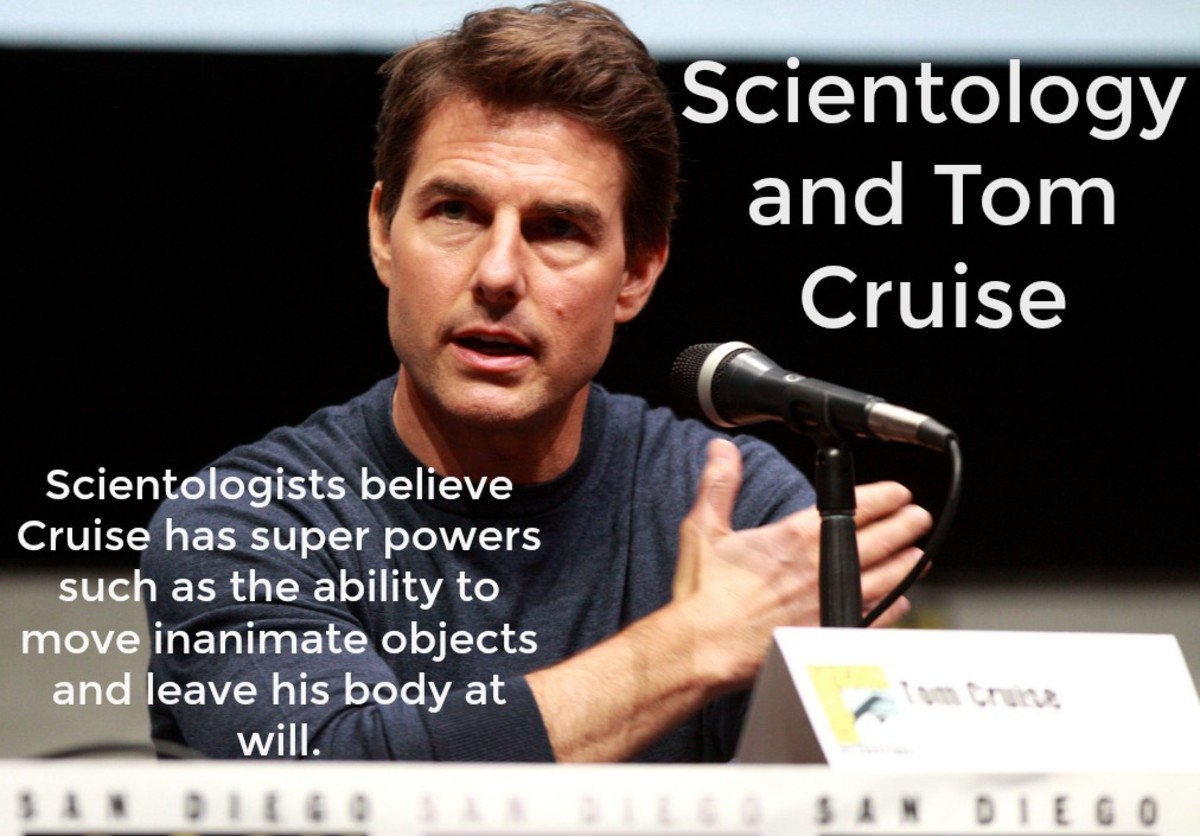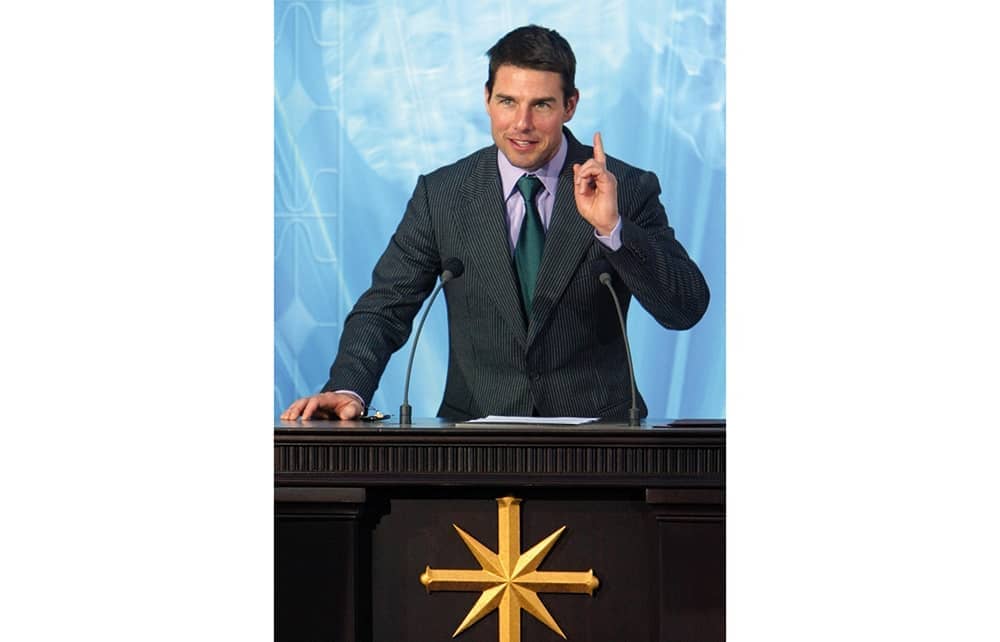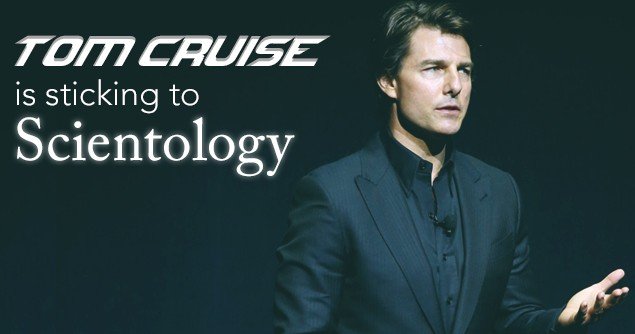Tom Cruise, one of Hollywood’s most bankable stars, is not just known for his blockbuster films and charismatic performances. He is also a prominent figure associated with the Church of Scientology, a religion that has attracted both fervent supporters and outspoken critics. This article explores the intricate relationship between Tom Cruise and Scientology, shedding light on the controversies, beliefs, and the implications of his involvement with this enigmatic organization.
The Rise of Tom Cruise
Born on July 3, 1962, in Syracuse, New York, Tom Cruise’s journey to fame began in the early 1980s. His breakout role in “Risky Business” catapulted him to stardom, followed by iconic performances in films like “Top Gun,” “Jerry Maguire,” and the “Mission: Impossible” series. Cruise’s dedication to his craft and his commitment to performing his own stunts have earned him respect in the industry.
However, his success is often overshadowed by his activism in Scientology, which has sparked debates about the intersection of celebrity and religion.
What is Scientology?
Founded in the early 1950s by science fiction writer L. Ron Hubbard, Scientology is a set of religious beliefs and practices that is based on Hubbard’s book “Dianetics: The Modern Science of Mental Health.” Scientology claims to offer a path to spiritual enlightenment through a process called “auditing,” where individuals confront and clear their past traumas to achieve a state of “Clear.” Some key aspects of Scientology include:
- Beliefs: Scientologists believe in the immortal nature of the human spirit, or “thetan,” which has lived through multiple past lives.
- Auditing: A central practice where trained auditors help individuals address their past experiences to overcome mental barriers.
- Operating Thetan Levels: A series of advanced spiritual levels that members aspire to achieve, which include various secrets and teachings.
Tom Cruise’s Journey into Scientology

Tom Cruise became involved with Scientology in the early 1990s, largely influenced by his then-wife, Mimi Rogers, who was a member of the church. His commitment to Scientology deepened over the years, leading him to become one of its most vocal advocates.
In 2005, Cruise’s relationship with Scientology became a public spectacle when he infamously jumped on Oprah Winfrey’s couch while professing his love for actress Katie Holmes. This moment, alongside his outspoken criticism of psychiatry, raised eyebrows and drew significant media attention.
The Controversies Surrounding Scientology

Scientology has long been embroiled in controversies, many of which have been amplified by Tom Cruise’s outspoken support. Some of the most significant issues include:
- Criticism of Psychiatry: Cruise has been an outspoken critic of psychiatry, labeling it a pseudoscience. This stance has been met with backlash from mental health professionals and advocates.
- Allegations of Abuse: The church has faced numerous allegations of abuse, harassment, and exploitation of its members, which have been documented in various media outlets and books.
- Celebrity Influence: Scientology has been criticized for its focus on recruiting celebrities, with critics arguing that the church uses their fame to gain legitimacy and attract new members.
Case Studies: The Impact of Celebrity on Scientology

Tom Cruise is not the only celebrity associated with Scientology, but his prominence has brought increased scrutiny to the church. Other high-profile members include John Travolta, Kirstie Alley, and more recently, Elizabeth Moss. The involvement of celebrities impacts the public perception of the church in several ways:
- Legitimacy: The presence of well-known figures lends credibility to Scientology, making it more appealing to potential recruits.
- Media Attention: Celebrity controversies often dominate headlines, drawing attention to the church and its practices, whether positive or negative.
- Recruitment: The church has been known to target celebrities for recruitment, hoping their influence will help spread Scientology’s teachings.
The Role of Media in Shaping Perceptions
The media plays a crucial role in shaping public perceptions of both Tom Cruise and Scientology. Investigative documentaries like “Going Clear: Scientology and the Prison of Belief” have exposed the inner workings of the church, showcasing testimonies from former members and critics. These portrayals often paint a stark picture of the organization, contributing to its controversial reputation.
Moreover, tabloid culture has sensationalized Cruise’s life, often focusing on his relationships, personal choices, and fervent commitment to Scientology. This coverage can lead to a distorted understanding of both the man and the religion.
Statistics on Scientology Membership and Influence
While Scientology claims to have millions of members worldwide, independent estimates suggest that the actual number is significantly lower. According to a 2019 report by the Pew Research Center, the church may have around 25,000 to 50,000 active members in the United States. Despite this relatively small membership, the church’s influence is amplified by its celebrity connections.
Conclusion: The Complex Tapestry of Celebrity and Religion

Tom Cruise’s journey with Scientology is emblematic of the broader complexities surrounding celebrity culture and religion. His unwavering support for the church has undoubtedly influenced public perception, both positively and negatively. While some view him as a champion of a misunderstood faith, others see him as a figure perpetuating dangerous ideologies.
Ultimately, Cruise’s relationship with Scientology serves as a reminder of the power dynamics at play in the intersections of fame, faith, and public opinion. As the conversation around Scientology continues to evolve, so too will the narratives surrounding its most famous advocate.
In summary, Tom Cruise’s connection with Scientology is a multi-faceted story that intertwines celebrity influence, religious beliefs, and societal perceptions. The controversies surrounding both the actor and the church highlight the ongoing debate about the role of celebrity in shaping religious narratives and the challenges of understanding faith in the public eye.